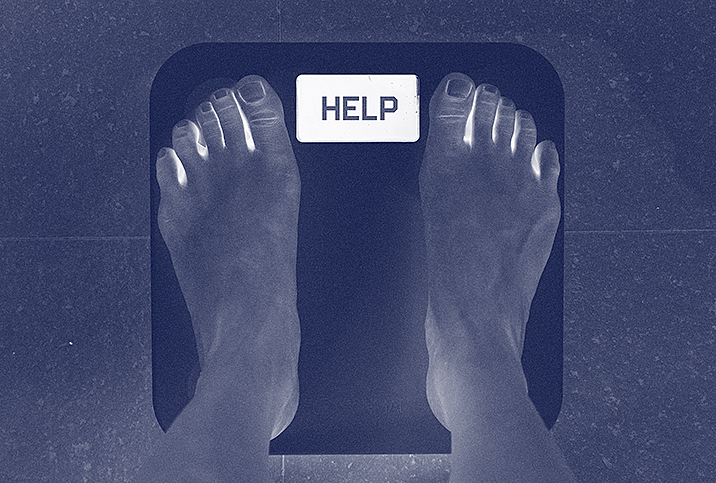How to Tell Your Partner That You Have an Eating Disorder

Honesty is the cornerstone of every healthy relationship, so it's natural to worry about how your partner will react when you reveal that you struggle with disordered eating.
There is no single way to disclose an eating disorder—or any other personal issue—to a partner. Some may choose to lay out the facts in a letter; others might opt for a private conversation. If you are already seeking professional help, you may choose to include your therapist in the conversation. A neutral third party with professional expertise can help facilitate the discussion and provide factual information about the disease and treatment. No matter which approach you choose, laying the groundwork with some basic steps will help the process go more smoothly.
Prepare yourself
Planning key points of the conversation will help keep you calm and ensure you approach your partner in a way that makes them feel heard and respected.
Addressing any sensitive topic can be intimidating, so as you plan, remind yourself that you are doing the right thing. If you are having trouble preparing for the conversation, consider talking to a professional first. You may already have a relationship with a counselor or may decide it's a good time to begin seeking help.
You may want to share your journey with your partner so they can understand the depth of your experience. Take time to think about how your condition developed, when your thinking about eating, weight, exercise and body image begin to shift and when your behavior started to change. How were you feeling and what were you experiencing as the transition progressed? Did you have a goal in mind as you changed your behavior? How did your physical and emotional health change? How are you feeling now? If you have not yet begun to seek treatment, are you ready to do so? What changes are you willing to make? These are all things that can help your partner understand how to better support you.
Set the stage
Find a location that is private and free from distractions. A restaurant, park or other public venues will likely not provide the atmosphere of safety you need. Likewise, a home setting that includes roommates or children is not optimal. Ensure that any roommates will be out for a considerable amount of time or that the kids are sound asleep or on a sleepover to ensure uninterrupted time. You may even choose an overnight getaway to establish a neutral environment and provide an extended amount of private time for each of you to process your feelings and thoroughly explore the conversation.
Be open to any reaction
Your partner may have an emotional response that ranges from denial to despair to anger. They might not be able to process what you tell them or understand how you are feeling or the reasons for your behavior. If you are in a new relationship, they may feel you entered it under false pretenses or that they are not emotionally invested enough to want to deal with the issue. If your relationship is well-established, they may feel you've been holding out on them and question the trust between the two of you.
Be patient as they come to terms with the information and their feelings about it. They may have questions. Stick to the facts. Answer them truthfully and calmly and, again, seek help if the two of you feel out of your depth.
Help them help you
While most cultures tend to sweep the incidence of eating disorders under the rug, they are not rare. Be ready to help your partner understand their prevalence, what they are and how they manifest. Explain your journey, what recovery looks like—if you know—and how they can help. Often the actions that seem most natural, such as monitoring food intake, are the most detrimental.
Most importantly, keep the lines of communication open, be honest about your feelings and be prepared to accept and process their honest reaction. Seek help, either as individuals, as a couple or both. Opening up to your partner about your eating disorder can create an inflection point in your relationship that leads to increased emotional intimacy and growth for you both.


















